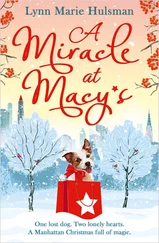Jo Coudert - The Dog Who Healed A Family
Здесь есть возможность читать онлайн «Jo Coudert - The Dog Who Healed A Family» — ознакомительный отрывок электронной книги совершенно бесплатно, а после прочтения отрывка купить полную версию. В некоторых случаях можно слушать аудио, скачать через торрент в формате fb2 и присутствует краткое содержание. Жанр: unrecognised, на английском языке. Описание произведения, (предисловие) а так же отзывы посетителей доступны на портале библиотеки ЛибКат.
- Название:The Dog Who Healed A Family
- Автор:
- Жанр:
- Год:неизвестен
- ISBN:нет данных
- Рейтинг книги:3 / 5. Голосов: 1
-
Избранное:Добавить в избранное
- Отзывы:
-
Ваша оценка:
- 60
- 1
- 2
- 3
- 4
- 5
The Dog Who Healed A Family: краткое содержание, описание и аннотация
Предлагаем к чтению аннотацию, описание, краткое содержание или предисловие (зависит от того, что написал сам автор книги «The Dog Who Healed A Family»). Если вы не нашли необходимую информацию о книге — напишите в комментариях, мы постараемся отыскать её.
The Dog Who Healed A Family — читать онлайн ознакомительный отрывок
Ниже представлен текст книги, разбитый по страницам. Система сохранения места последней прочитанной страницы, позволяет с удобством читать онлайн бесплатно книгу «The Dog Who Healed A Family», без необходимости каждый раз заново искать на чём Вы остановились. Поставьте закладку, и сможете в любой момент перейти на страницу, на которой закончили чтение.
Интервал:
Закладка:
After dinner, Jane yielded and released her. Quite as though Elizabeth had used the time in her cottage to think up what she might do to entertain the party, she hopped into the exact center of the living room floor and gazed seriously around the circle of faces. When silence had fallen and she had everyone’s full attention, she leaped straight into the air, whirled like a dervish and crash-landed in a sprawl of legs and flying ears. The applause was prolonged. Peeping shyly from behind her ear, Elizabeth accepted it, looking quite pleased with herself.
The children’s father adored her, and when in the course of the evening he saw that Elizabeth went to the terrace door and scratched to be let out, he couldn’t wait to take her home. “She’s housebroken,” he reminded his wife, who was hesitating, “and the kids’ll love her.” Elizabeth, returning, climbed into his lap, and it was settled: Elizabeth was to go to her new family. Until the end of the evening. “What have you spilled on yourself?” the man’s wife asked. The edge of his suit jacket, from lapel to bottom button, was white. Elizabeth had nibbled it down to the backing.
“You rat,” Jane scolded her when the guests had gone. “I found a good home for you, and you blew it.” Elizabeth shook her head remorsefully, beating herself with her floppy ear, and wandered away. After Jane had cleaned up the kitchen and was ready for bed, she went looking for Elizabeth to put her in her cottage. She hunted high, low and in between. Where was she? Beginning to be frantic, she went through the apartment a second time. She even looked over the terrace railing, wondering for one wild moment if Elizabeth had been so contrite she’d thrown herself off. Only because there was nowhere else to search did Jane open the refrigerator door. There Elizabeth was, on the bottom shelf, having a late-night snack of carrot sticks and parsley.
For quite a while after that, nothing untoward happened, and Elizabeth, Robert and Jane settled into a peaceful and loving coexistence. When Jane watched Elizabeth sunbathing on the terrace beside Robert or sitting on her haunches to wash her face with her dainty paws or jumping into her lap to be petted, she found herself wondering how she could have imagined giving Elizabeth up. Until the day she did a thorough housecleaning and moved the couch. The rug had been grazed down to the backing.
“She’s eating me out of house and home. Literally,” Jane wailed to a college friend over lunch. “I’m going to have to turn her in to the ASPCA.”
“Don’t do that. I’ll take her,” Jane’s friend replied, surprising her because Jane knew she did not approve of pets in the house. “She can live in our garage. Evan’s ten now. It’ll be good for him to have the responsibility of caring for an animal.”
Jane’s bluff had been called. Could she really envision life without Sweet Elizabeth? She was silent. Her friend said, “Come on. We’ll go get her right now.”
Elizabeth met them at the door, sitting up as usual to have her ears scratched. “Oh, she’s cute,” said the friend, but so perfunctorily that Jane knew she had missed the point of Elizabeth. “Never mind,” Jane whispered into Elizabeth’s soft fur, “it’ll be all right. She’ll come to love you, just as I did, and you’ll be happy in the country.” Elizabeth shook her head slowly. Was there reproach in her eyes? Jane gave one last kiss to that foolish ear.
Robert was restless that evening, going often out on the terrace. “Oh, Robbie,” Jane told him, “I’m so sorry. She was your friend, too, and I didn’t think of that.” As Jane hugged him, the old emptiness returned, the emptiness of the time before Sweet Elizabeth when Jane used to imagine that everyone else’s phone was ringing, that everyone else had friends to be with and places to go. A little white rabbit who gave Jane the courage to reach out had made a surprising difference in her life.
It was weeks before she slammed the refrigerator door without a second thought, stopped expecting an innocent white face to come peeking around the terrace door, gave up listening for the thump of those heavy back feet. For a long time she didn’t trust herself even to inquire about Elizabeth. Then one day she was driving to Boston and, on impulse, decided to stop off in Connecticut to see her. No one was home, but the garage door was open. It was some time before Jane’s eyes got accustomed to the dark and she could distinguish the white blur that was Elizabeth. The little rabbit was huddled in a corner of her cottage, shaking with cold. The straw on the floor was soaking wet. The draft from the open door was bitter. Her food and water bowls were empty. Jane spoke her name and Elizabeth crept into her arms. Wrapping her in a sweater, Jane canceled her trip to Boston and headed back home.
She called her college friend the next day and told her she’d missed Elizabeth so much that she’d kidnapped her. That was all right, her friend said; what with the basketball season and all, her son hadn’t had much time for the rabbit. That left Jane with just one other phone call to make—the one canceling the order for a new rug. Then she settled back to watch Elizabeth and Robert rolling across the floor together.
Frankie Buck
On a narrow road twisting along beside a mountain stream lay a deer, struck and killed by a car.
A motorist happening along the infrequently traveled road swerved to avoid the deer’s body. As the driver swung out, he noticed a slight movement and stopped. There, huddled beside the dead doe, was a fawn, a baby who must have been born as its mother died, for the umbilical cord was still attached. “I don’t suppose you have a chance,” the motorist told the tiny creature as he tied off the cord, “but at least I can take you where it’s warm.”
The nearest place was the power plant of a state geriatric institution on a wooded mountaintop overlooking the town of Glen Gardner, New Jersey. Maintenance men there quickly gathered rags to make a bed for the fawn behind the boiler. When the fawn tried to suck the fingers reaching out to pet it, the men realized it was hungry and took a rubber glove, pricked pinholes in one finger, diluted some of the evaporated milk they used for their coffee and offered it to the fawn, who drank eagerly.
The talk soon turned to what to name the deer. Jean Gares, a small, spare man who was the electrician at the institution, had a suggestion. “If it’s a female, we can call her Jane Doe,” he proposed. “If it’s a male, Frank Buck.” The others laughed and agreed.
With the maintenance men taking turns feeding it around the clock, the little deer’s wobbly legs—and its curiosity—soon grew strong enough to bring it out from behind the boiler. The men on their coffee breaks petted and played with the creature, and as soon as they were certain that Frank Buck was the name that fit, they shortened it to Frankie and taught him to answer to it. The only one who didn’t call him Frankie, oddly enough, was Jean Gares. He, his voice rough with affection, addressed him as “you little dumb donkey,” as in “Come on and eat this oatmeal, you little dumb donkey. I cooked it specially for you.”
When Jean came to work at six each morning, always in his right-hand pocket was a special treat, an apple or a carrot, even sometimes a bit of chocolate, which Frankie quickly learned to nuzzle for. On nice days the two of them stepped outside, and Jean rested his hand on Frankie’s head and stroked his fur as they enjoyed the morning air together.
At the far end of the field in front of the power plant, deer often came out of the woods to graze in the meadow. When Frankie caught their scent, his head came up and his nose twitched. “We’d better tie him up or we’re going to lose him,” one of the men commented. Jean shook his head. “He’ll know when it’s time to go,” he said. “And when it is time, that’s the right thing for him to do.”
Читать дальшеИнтервал:
Закладка:
Похожие книги на «The Dog Who Healed A Family»
Представляем Вашему вниманию похожие книги на «The Dog Who Healed A Family» списком для выбора. Мы отобрали схожую по названию и смыслу литературу в надежде предоставить читателям больше вариантов отыскать новые, интересные, ещё непрочитанные произведения.
Обсуждение, отзывы о книге «The Dog Who Healed A Family» и просто собственные мнения читателей. Оставьте ваши комментарии, напишите, что Вы думаете о произведении, его смысле или главных героях. Укажите что конкретно понравилось, а что нет, и почему Вы так считаете.












